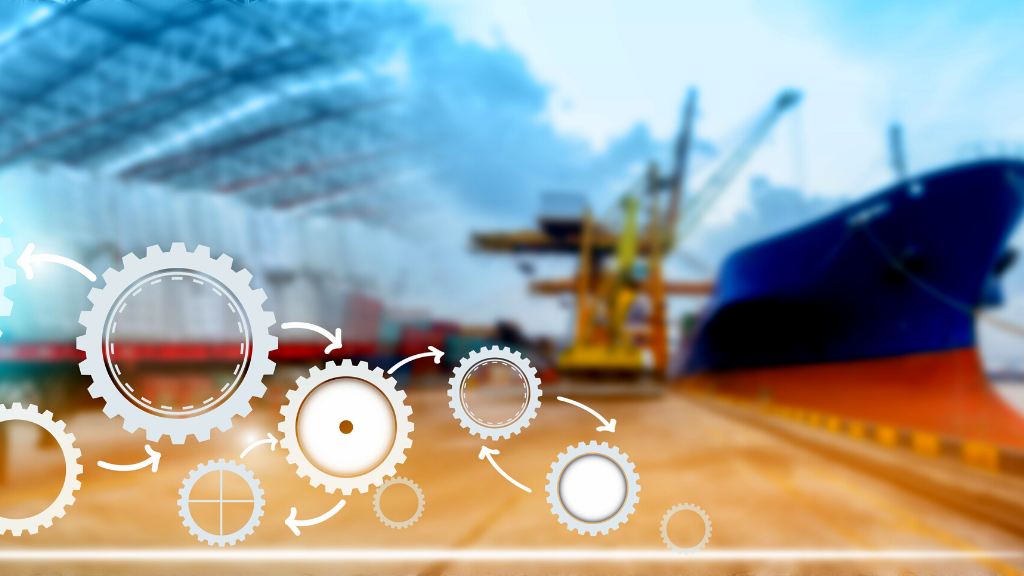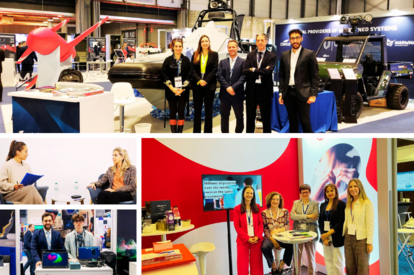
Small businesses in Europe are facing unprecedented challenges. The war in Ukraine, combined with China's economic slowdown, the pandemic, and the climate crisis, is disrupting global supply chains and impacting industries from semiconductors to food. To help Europe recover quickly, it's essential to strengthen the resilience of small and medium-sized enterprises (SMEs) and start-ups, enabling them to bounce back from these crises.
The Supply Chain Resilience platform – jointly launched by the European Commission, the Enterprise Europe Network, the European Cluster Collaboration Platform, and the Lithuanian Innovation Centre – is connecting businesses worldwide to work together to mitigate risks. Mantas Vilys, Director at the Lithuanian Innovation Centre and Coordinator at Enterprise Europe Network – Lithuania, shares the story behind the initiative.
According to a European Parliamentary briefing published in 2021, over two-thirds of international trade involves transactions via global supply chains. Moreover, the European Union (EU) is much more involved and dependent on global supply chains compared to other countries, including the United States and China.
The pandemic has broken down supply chains around the world, testing the resilience and agility of small companies as they sought to maintain their operations. When the war in Ukraine broke out and businesses were forced to flee, reconfigure themselves, or close their doors, the need to support entrepreneurship and boost business-to-business (B2B) cooperation in Europe became even more apparent. The Enterprise Europe Network partners in Lithuania, supported by the European Commission and the European Cluster Collaboration Platform, launched the Supply Chain Resilience platform in response to these challenges. This is a virtual space for collaboration and matchmaking that helps companies retain, restructure or replace existing supply chains, while sourcing raw materials, goods and services they need to operate at full capacity.
The Supply Chain Resilience platform: from idea to implementation
Reconfiguring global supply chains is challenging, and building resilience is both time-consuming and costly. However, significant progress can be made when countries unite around a shared vision and goal. One of the EU's key objectives is to strengthen its position in the global supply chain, diversify strategic partnerships, and boost domestic production, all while creating supply chains at the European level.
The Supply Chain Resilience platform was created to shorten supply chains and help businesses better manage delays, bottlenecks, and shortages. Designed to be user-friendly, it allows companies to connect with new partners, suppliers, and buyers, as well as engage with other businesses, support organisations, academia, and decision-makers. The platform covers all major sectors, including construction, health, mobility, and energy.
This initiative would likely have remained just an idea if our partners hadn't acted quickly and decisively. From concept to full implementation, the platform was launched in just three weeks. While this may seem like a long time, considering the complexity of the task and the many stakeholders involved, we are proud of what we achieved. By the end of May 2022, over 670 participants from more than 40 countries had registered on the platform. To date, the platform has received over 16,300 views, highlighting its value to businesses worldwide.
How the platform can help your business
Setting up the platform was just the beginning; the next challenge is unlocking its full potential. The first significant results came during the matchmaking event Clusters meet Regions in April, which attracted nearly 300 participants. This event offered excellent networking opportunities for the European cluster and business communities, with over 120 B2B meetings held both virtually and on-site in Vilnius. Due to high demand, the organisers expanded the capacity for virtual meetings, and feedback from participants was overwhelmingly positive. Most importantly, the platform helped SMEs and start-ups expand their networks and establish new business partnerships. With negotiations underway, we expect to see signed deals soon.
The business community in Ukraine is one of the platform’s primary beneficiaries. Over 90% of Ukrainian SMEs are actively seeking EU partners across all sectors, including construction, health, IT, and transportation. By late May 2022, the platform had attracted over 80 participants from Ukraine. However, the Supply Chain Resilience platform is just one of the many tools the Enterprise Europe Network uses to support Ukrainian companies. The Network also assists Ukrainian partners by hiring staff through service contracts and contributes to humanitarian efforts in response to the crisis.
A number of national initiatives complement these efforts. For instance, the Network partners in Poland have recently launched a webpage listing Ukrainian companies looking for distributors and investors in Poland. Another example is the B2WORTH@TorinoFashionMatch 2022, an international matchmaking event bringing together companies, buyers, retailers, suppliers and investors in the textile, fashion, and design sectors. Six Ukrainian brands will participate, showcasing their work, finding new business partners, and taking part in the Torino Fashion Week. This brokerage event, organised by Unioncamere Piemonte and the Turin Chamber of Commerce, is a collaboration with Enterprise Europe Network experts in the textile industry and cultural and creative sectors.
How to manage supply chain disruptions
The Supply Chain Resilience platform was created in response to a severe crisis menacing businesses in Europe and beyond. While the stability of global supply chains is out of the companies’ control, businesses should always be prepared to manage such disruptions. Here are four steps that SMEs can take to future-proof themselves and thrive during uncertainty:
1. Be aware of risks and plan ahead
Anticipating potential threats to supply chains and proactively managing disruptions are essential for navigating ongoing uncertainty. Companies should hold regular planning sessions with their teams to identify, understand, and map out risks that could arise during crises. Supply chain interruptions can be caused by various factors, including pandemics, natural disasters, trade disputes, geopolitical instability, demand and supply fluctuations, transportation failures, and cyberattacks. Many organisations now use advanced simulation tools to create digital twins of their supply chains, which help predict disruptions and mitigate impacts. For example, these technologies offer data-driven insights into supply chain structures, monitor risks, identify potential scenarios, enhance cybersecurity, and improve logistics contingency planning.
2. Take preventive measures
After identifying key threats to their supply chains, companies should assess potential outcomes, develop response strategies for each scenario, and integrate risk management into their business processes. A solid contingency plan enables companies to find alternative routes, local suppliers, and different shipping options, saving time and money during a crisis. Being prepared with solutions before problems arise provides businesses with a strong competitive edge.
3. Diversify supply base across all channels
Once companies gain end-to-end visibility of their supply chains, diversifying suppliers and manufacturing partners is one of the best ways to reduce the impact of disruptions. This strategy increases flexibility, allowing businesses to respond quickly and accurately to future changes in trade flows.
4. Plan for recovery and seek expert advice
Disruptions can also present opportunities for critical business decisions, such as necessary reorganisations or changes to products or services. Companies should remain open to continuous learning and improvement. Much like the human body needs exercise, a balanced diet, rest, and regular check-ups to stay healthy, businesses occasionally need a "doctor" (a business consultant) for expert advice. The Enterprise Europe Network is ready to help SMEs assess their current state and provide solutions to address their challenges.
Mantas Vilys is a Director at Lithuanian Innovation Centre and Coordinator at Enterprise Europe Network Lithuania.
Related articles

In a world of saturated markets and shrinking attention spans, innovative SMEs must go beyond great products: they need smart, strategic communication to succeed globally. Discover five powerful tips...

Starting a business on a tight budget? You don’t need a huge marketing budget to see real results. In this article, we’ll share 4 affordable marketing strategies for small businesses, showing you how...

Resilience is key to overcoming setbacks, uncertainty, and the daily challenges of running a business. In this blog, communication expert Emma Ewing and well-being coach Tammy Barter break down what...

Is Texas your next big opportunity? You’re probably thinking of sizzling fajitas, rugged cowboys, or the sweet sound of Willie Nelson strumming his guitar. Well, Texas has all of that, but it’s also...
